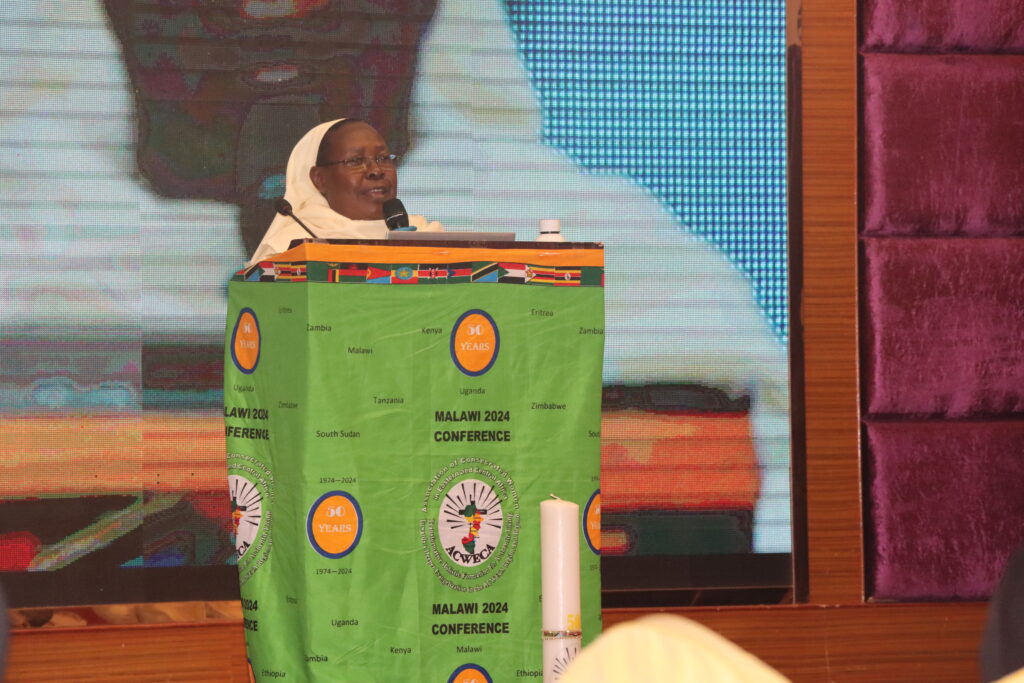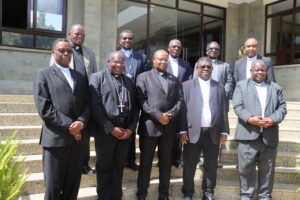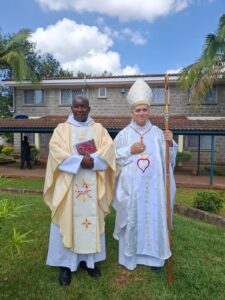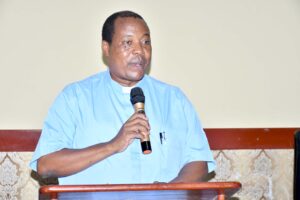ACWECA PLENARY: Deeper Evangelization Calls for More Investment in Transformative Formation, Says Nun at ACWECA’s Assembly

Sr. Jane Frances Nnantamu
Sr. Jecinter Antoinette Okoth, FSSA
Delegates for the Association of Consecrated Women in Eastern and Central Africa (ACWECA) attending the 19th Plenary Assembly in Lilongwe, Malawi, have been reminded that holistic and transformative formation is key for the realization of deeper evangelization in society today.
Speaking about the Plenary’s theme: ‘Transformative holistic formation for authentic living towards a deeper evangelization in the ACWECA region and beyond,’ and what means to the association, Sr. Jane Frances Nnantamu a member of the Immaculate Heart of Mary Reparatrix (IHMR) congregation told the assembly of over 200 delegates and partners that, “True formation must be holistic and when it is holistic it is naturally transformative and if transformative it leads to authentic living and authentic living is the backbone of deeper evangelization.”
The nun who has nearly 30 years of experience in the formation of candidates for priesthood and religious life underscored that deeper evangelization which is actually evangelical effectiveness is “a life that becomes a bridge not an obstacle for others in their meeting with Jesus Christ.”
In this way, the alumni of the Pontifical Gregorian University, Rome, told the delegates who were Religious Sisters from various congregations across the region and beyond including partners that, “By our call as consecrated women, our life is to mirror the love and mercy of God to people.”
To live an authentic life, especially during formation to reflect the same in one’s entire life Sr. Nnantamu who currently serves as the Dean of the Faculty of Social Sciences and Psychology at the University of Kisubi, in Entebbe, Uganda pointed out the need to internalize the values of Christ in one’s motivational system so the person can live by them regardless of the pressure within or without.
“Internalization occurs when the adopted values become independent of the external source and become part of a personalized system,” Sr. Nnantamu said and explained, “When the value is internalized, it becomes strong in the person’s dynamic system and the person can withstand pressure in times of crisis.”
Stressing her message on Tuesday, August 20, to the delegates, the member of the congregation commonly referred to as the Ggogonya sisters pointed out that even though the primacy of God’s grace is acknowledged in formation, “it is also important to understand that growth in vocation is not linear and does not happen automatically.”
This means, “Vocation does not fall on neutral ground; it takes root in structures within the person that are already formed by the influence of psychosocial factors, heredity, family dynamics, or education,” she said and added, “As formators, we supply the raw materials to God’s amazing grace for the formation of an individual.”
“Formation in consecrated life therefore is a work of God’s grace but also a process of human development, of psychosocial adaptation in order to cultivate human capacities that are required for the process of internalization of vocational values,” Sr. Nnantamu expressed.
In this case therefore without integration between the human and the spiritual, the values proposed during formation, instead of favoring growth, may become a source of frustration and alienation.


